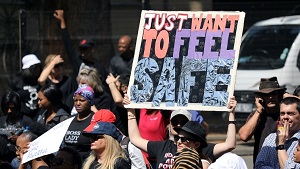The memo, circulated by the Ministry’s Human Resources department, called on employees to gather for solemn prayer sessions and fast every Monday for three weeks. The move, described as a spiritual step toward achieving food security, comes at a time when millions of Nigerians are struggling to put food on the table.
According to the United Nations, at least 4.4 million Nigerians are currently facing acute food shortages. The country is experiencing its most severe economic downturn in decades, fuelled by a series of policy shifts introduced by the administration in 2023. These changes have driven up the cost of basic commodities, with the price of yams alone reportedly increasing fourfold in the space of a year.
While some see the call to prayer as a symbolic act of unity and hope, others have criticised it as an indication that the government is deflecting from its responsibility to tackle the crisis through practical, sustainable solutions. Critics argue that a spiritual appeal, in isolation, does little to address the structural challenges facing the agricultural sector and the wider economy.
Government officials, however, insist that the spiritual appeal is being made alongside concrete interventions. They highlight measures such as the distribution of over 1,000 tractors and more than two million bags of fertiliser to farmers as part of ongoing efforts to boost food production.
Despite these assurances, frustration continues to mount as inflation bites deeper into household incomes. For many Nigerians, the latest developments have only intensified concerns about the government’s ability, or willingness, to provide meaningful relief as the cost of living crisis persists.
--ChannelAfrica--













